Renée Vivien’s “At the Sweet Hour of Hand in Hand” by Michael C.
“At the Sweet Hour of Hand in Hand” is a collection of poetry by the renowned poet Renée Vivien. The collection itself is within a slight, unassuming paperback book that consists of pictures of Vivien, a short foreword, and a large portion of her published poetry. Despite being a relatively thin book, the edition I was able to examine was still excellently preserved and bound together tightly.
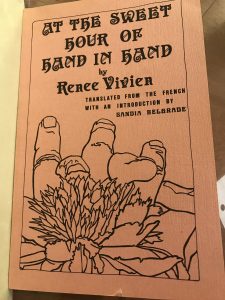
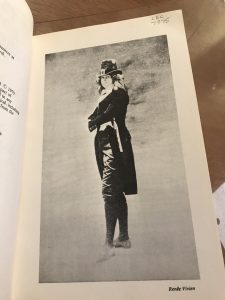
Much of her poems in this work deal with themes of love, and specifically the love between two women. Vivien approaches a variety of feeling surrounding love, such as feelings of passion, rejection, and isolation. In many ways, Vivien’s poetry serves as a reflection of the experiences of love she faced throughout her own life. This collection included a brief biography of Vivian’s life and relationships, which documented a short but passionate relationship as well as more long-term relationships that ultimately didn’t last. Additionally, Vivien seeks to portray the love between two women as unique throughout her poems.
Readers gain some insight to Vivien’s inspiration for her poetry in poems such as “Sappho Lives Again” in which she directly mentions ancient Greek poet Sappho and the isle of Lesbos as she describes love between two women. Many of her poems include some reference to Sappho or the location Lesbos, emphasizing her romanization of the ideals they represent. Vivien often accompanies these Greek references with descriptions of passionate, pure love between women. In her eyes, Sappho and Lesbos are strongly connected with her modern conceptions of the ideal love between two women. This is further illustrated by Vivien’s own travels to Lesbos with her romantic partner.
From an individual perspective, these romanticized poems changed my view of the collection because despite some of the hardships faced by Vivien, there are still many poems that ascribe value to love. These poems specifically lend themselves to my interpretation that regardless of the challenges faces as a result, the act of loving and believing in love is valuable and worthwhile.
Much of Vivien’s poetry also addresses the more negative aspects of love and the possible ramifications of being openly lesbian during her time. She openly grapples with feelings of isolation and rejection in her poems “Like This I Would Speak” and “To An Impoverished God” in which she grapples with the concept of forbidden love in light of Christianity. In both poems, Vivien feels cast out by “the righteous people of this world” and feels that she suffers the “insults and outrage of the strong”. Far from romanticizing love, Vivian acknowledges the harm that can come from love that does not fit traditional norms. Apart from the ideas of societal norms, Vivien also writes of unrequited love in poems such as “May A Wave Carry It Away”. Rather than praising and romanticizing love between women, she claims to be “weary of loving transient forms”. Her varying descriptions of love illustrates that love does not decidedly have a single positive or negative connotation, and can change overtime and by experience.
Ultimately, Vivien provides readers with insights into love that draw heavily on her own romantic past. In doing this, we are made to better understand the transitional nature of love and its existence as both a positive and negative force.
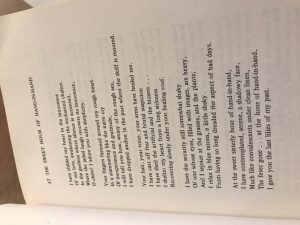
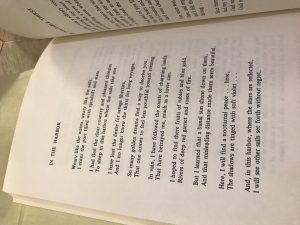

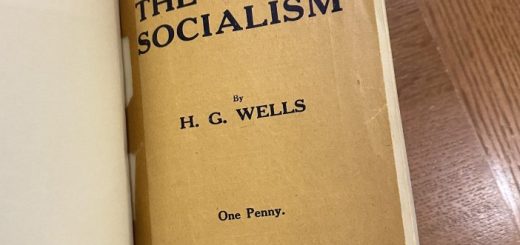




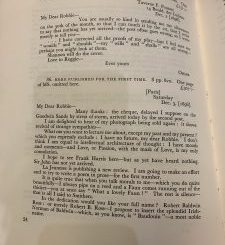

Recent Comments